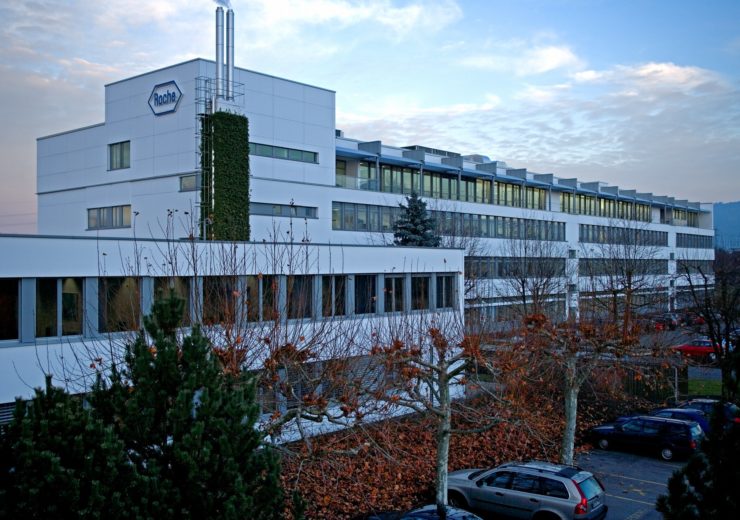Tecentriq is an initial monotherapy for patients with advanced non-squamous and squamous non-small cell lung cancer (NSCLC)

US FDA grants priority review for Roche’s Tecentriq for advanced NSCLC. (Credit: F. Hoffmann-La Roche Ltd.)
Roche announced that the US Food and Drug Administration (FDA) has accepted its supplemental biologics license application (sBLA) and granted priority review for Tecentriq (atezolizumab) to treat a type of lung cancer.
Tecentriq is indicated as initial monotherapy for advanced non-squamous and squamous non-small cell lung cancer (NSCLC) in patients without EGFR or ALK mutations with high PD-L1 expression, as determined by PD-L1 biomarker testing.
The US regulatory agency is expected to announce its decision on approval by 19 June 2020.
Roche chief medical officer and global product development Head Levi Garraway said: “In the IMpower110 study, Tecentriq alone demonstrated a significant improvement in overall survival compared with chemotherapy for people newly diagnosed with certain types of advanced non-small cell lung cancer.
“We are working closely with the FDA to bring this chemotherapy-free option to these patients as quickly as possible.”
Roche submitted Tecentriq sBLA based on Phase 3 IMpower110 trial
Roche said that its sBLA is supported by the results from the Phase 3 IMpower110 trial, which demonstrated that Tecentriq monotherapy improved overall survival (OS), compared to chemotherapy.
IMpower110 is a randomised, open-label clinical study designed to evaluate the efficacy and safety of the drug, compared to chemotherapy comprising cisplatin or carboplatin and pemetrexed or gemcitabine.
Tecentriq is a monoclonal antibody designed to bind with PD-L1, a protein expressed on tumour cells and tumour-infiltrating immune cells, preventing its interactions with both PD-1 and B7.1 receptors, and is believed to activate the T-cells.
The company said that its Tecentriq is capable of being used as a combination medication with other immunotherapies, targeted medicines and various chemotherapies for different types of cancers.
In addition, the drug has shown consistent safety with its known safety profile, and no new safety signals were identified in the clinical study.
